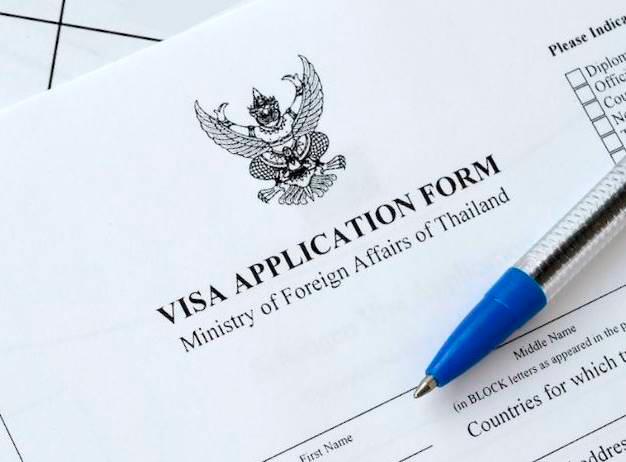
The Thailand LTR Visa represents a fundamental shift in Thailand’s immigration policy. Rather than a conventional visa extension system based on tourism, retirement, or temporary employment, the LTR Visa provides a 10-year structured residence status tailored to attract economically valuable and professionally skilled foreign nationals.
Administered through the Thailand Board of Investment (BOI), the LTR Visa aims to balance ease of entry with rigorous eligibility standards, positioning Thailand as a regional hub for innovation, investment, and professional expertise in Southeast Asia.
This guide explores the legal basis, eligibility structure, application process, rights and obligations, and strategic importance of the LTR Visa.
1. Legal and Policy Foundation
1.1 Governing Laws
- Immigration Act B.E. 2522 (1979) — Fundamental immigration statute.
- Royal Gazette Notifications (2022) — Formal establishment of LTR policy.
- BOI Regulations and Announcements — Operational framework for qualification and endorsement.
1.2 Institutional Oversight
- Thailand Board of Investment (BOI) — Primary authority for applicant vetting and endorsement.
- Immigration Bureau — Visa issuance and compliance enforcement.
- Revenue Department — Tax administration for qualifying LTR holders.
2. Visa Structure and Duration
| Feature | Details |
|---|---|
| Total Duration | 10 years |
| Visa Issuance | Issued in two 5-year terms |
| Entry Rights | Multiple-entry, no re-entry permit required |
| Stay per Entry | Up to 5 years (renewable internally) |
| Annual Reporting | Once per year (not 90 days) |
Unlike conventional Thai visas, the LTR Visa reduces immigration bureaucracy significantly, requiring only minimal contact with immigration offices after issuance.
3. Eligible Applicant Categories and Criteria
Thailand’s LTR system organizes applicants into four primary categories, each designed to serve national development goals.
3.1 Wealthy Global Citizens
- Minimum personal income of USD 80,000/year for the past 2 years.
- Net assets of at least USD 1 million.
- Investment in Thailand (real estate, Thai government bonds, or FDI) of at least USD 500,000.
3.2 Wealthy Pensioners
- Retirees aged 50+.
- Annual pension income of at least USD 80,000; alternatively, USD 40,000 plus investment in Thailand.
3.3 Work-from-Thailand Professionals (Remote Workers)
- Employed by an overseas company with:
- Income of at least USD 80,000/year.
- Proven 5 years of work experience in a targeted sector.
- Employer must be a public company or a private company with at least USD 150 million in revenue over the past 3 years.
3.4 Highly Skilled Professionals
- Employment or job offer in designated sectors (e.g., healthcare, digital tech, biotech, green energy).
- Salary of at least USD 80,000/year (or USD 40,000/year for government-affiliated jobs).
- At least 5 years’ professional experience (with exceptions for doctoral degree holders).
3.5 Dependents
- Spouse and up to four dependent children under 20 years of age.
Important:
Each category has strict documentation requirements and is subject to a multi-stage endorsement process before visa issuance.
4. Application and Screening Procedure
Step 1: Online Application
- Submit application via the LTR Visa online platform managed by the BOI.
- Upload personal data, proof of income/assets, health insurance, and employment/investment documentation.
Step 2: BOI Review and Endorsement
- Preliminary screening by the Thailand Board of Investment.
- Specialized agency involvement (e.g., Digital Economy Promotion Agency for tech professionals).
- Standard processing time: 30–45 working days.
Step 3: Visa Issuance
- Upon BOI endorsement, visa issuance is conducted by:
- Thai Embassies or Consulates abroad, or
- The Immigration Bureau in Thailand for onshore applicants.
- Fee: THB 50,000 per applicant (dependents inclusive).
Step 4: Optional Work Authorization
- Apply for a Digital Work Permit linked to LTR status.
- Exemption from traditional labor quota requirements (no need to employ 4 Thai nationals per 1 foreigner).
5. Privileges and Incentives
| Privilege | Details |
|---|---|
| Fast-Track Immigration Lanes | Expedited processing at Thai airports. |
| Reduced Taxation | 17% flat tax rate for Highly Skilled Professionals. |
| Simplified Employment Rules | Digital Work Permit issuance without ratio barriers. |
| Extended Stay for Family | Dependents can live and study without needing separate visa types. |
| Property Ownership Facilitation | Enhanced eligibility to purchase condominium units under foreigner regulations. |
The LTR Visa is designed to offer legal certainty, lifestyle quality, and business mobility unmatched by previous Thai visa schemes.
6. Obligations and Reporting Requirements
LTR Visa holders must maintain:
- Valid Health Insurance: Policy covering at least USD 50,000.
- Annual Status Reports: Confirm current address, employment, and health insurance coverage.
- Compliance with Employment Declaration: Only permitted to work in designated sectors if using the Digital Work Permit.
Violations (e.g., unauthorized employment, expired insurance) may lead to visa revocation and blacklisting.
7. Challenges and Practical Issues
7.1 Financial Proof Complexity
- Documenting foreign income, assets, and investments must satisfy Thai legal standards (translated and legalized documents often required).
7.2 No Direct Path to Permanent Residency
- LTR status does not itself confer eligibility for PR, but it facilitates long-term residence history helpful for future PR or naturalization applications.
7.3 Immigration Bureau Interpretation Variance
- Implementation may vary by province, especially regarding digital work permits and family-dependent processing.
8. Conclusion
The Thailand Long-Term Resident (LTR) Visa is the most comprehensive long-stay visa Thailand has ever introduced. It fuses immigration flexibility, tax incentives, and employment rights into a unified legal instrument, enabling foreign nationals to integrate economically and socially with fewer bureaucratic hurdles.
However, the LTR Visa is tailored to a specific demographic: individuals with proven economic or professional value, clear documentation trails, and the intention to contribute to Thailand’s future growth sectors. Successful application requires thorough financial and professional documentation, strategic immigration planning, and ongoing compliance management.

